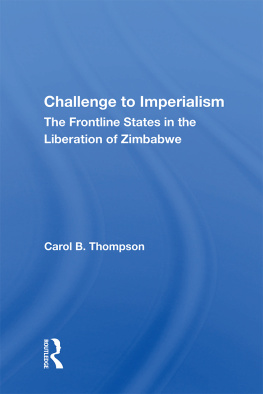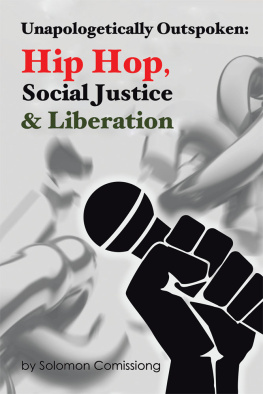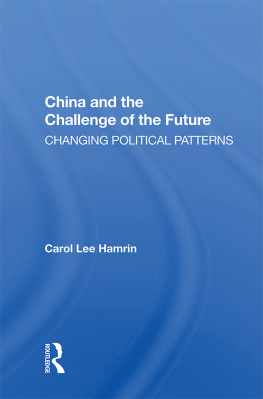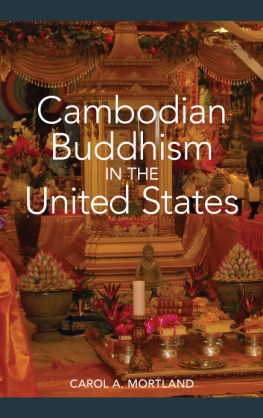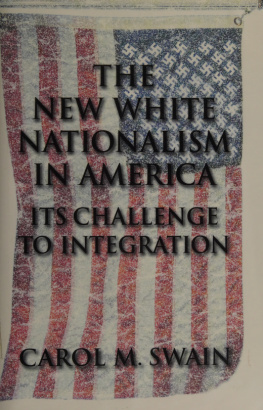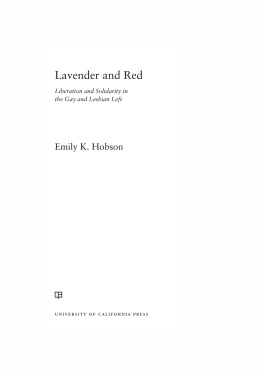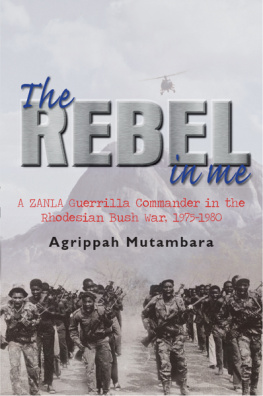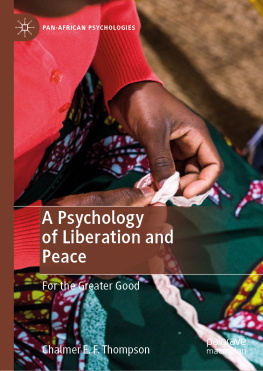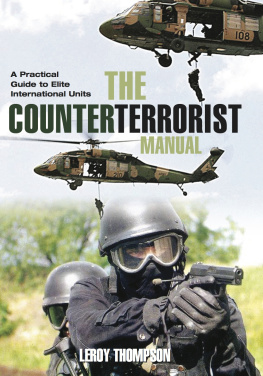Carol B. Thompson - Challenge to Imperialism: The Frontline States in the Liberation of Zimbabwe
Here you can read online Carol B. Thompson - Challenge to Imperialism: The Frontline States in the Liberation of Zimbabwe full text of the book (entire story) in english for free. Download pdf and epub, get meaning, cover and reviews about this ebook. year: 1986, publisher: Routledge, genre: Politics. Description of the work, (preface) as well as reviews are available. Best literature library LitArk.com created for fans of good reading and offers a wide selection of genres:
Romance novel
Science fiction
Adventure
Detective
Science
History
Home and family
Prose
Art
Politics
Computer
Non-fiction
Religion
Business
Children
Humor
Choose a favorite category and find really read worthwhile books. Enjoy immersion in the world of imagination, feel the emotions of the characters or learn something new for yourself, make an fascinating discovery.
- Book:Challenge to Imperialism: The Frontline States in the Liberation of Zimbabwe
- Author:
- Publisher:Routledge
- Genre:
- Year:1986
- Rating:3 / 5
- Favourites:Add to favourites
- Your mark:
- 60
- 1
- 2
- 3
- 4
- 5
Challenge to Imperialism: The Frontline States in the Liberation of Zimbabwe: summary, description and annotation
We offer to read an annotation, description, summary or preface (depends on what the author of the book "Challenge to Imperialism: The Frontline States in the Liberation of Zimbabwe" wrote himself). If you haven't found the necessary information about the book — write in the comments, we will try to find it.
Carol B. Thompson: author's other books
Who wrote Challenge to Imperialism: The Frontline States in the Liberation of Zimbabwe? Find out the surname, the name of the author of the book and a list of all author's works by series.
Challenge to Imperialism: The Frontline States in the Liberation of Zimbabwe — read online for free the complete book (whole text) full work
Below is the text of the book, divided by pages. System saving the place of the last page read, allows you to conveniently read the book "Challenge to Imperialism: The Frontline States in the Liberation of Zimbabwe" online for free, without having to search again every time where you left off. Put a bookmark, and you can go to the page where you finished reading at any time.
Font size:
Interval:
Bookmark:

52 Vanderbilt Avenue, New York, NY 10017
2 Park Square, Milton Park, Abingdon, Oxon OX14 4RN
Product or corporate names may be trademarks or registered trademarks, and are used only for identification and explanation without intent to infringe.
Thompson, Carol B.
Challenge to imperialism.
1. Africa, SouthernForeign relationsZimbabwe.
2. ZimbabweForeign relationsAfrica, Southern.
3. ZimbabwePolitics and government. 4. Southern
Africa Development Co-ordination Conference.
I. Title
DT747.Z55T48 1986 327.6068 85-32317
- xiv
- ANCSouth Africa African National Congress of South Africa
- ANC African National Council in Zimbabwe; in 1976 it became the UANC
- CAF Central African Federation
- DARE Dare re Chimurenga ('Council of Revolution' in Shona) ZANU war council
- FNLA National Front for the Liberation of Angola
- Frelimo Front for the Liberation of Mozambique
- Frolizi Front for the Liberation of Zimbabwe
- MOLINACO National Liberation Movement of the Comores
- MPLA Popular Movement for the Liberation of Angola
- PAIGC African Independence Party of Guinea and Cape Verde Islands
- PF Patriotic Front (ZANU and ZAPU)
- UANC United African National Council
- UDI Unilateral Declaration of Independence
- UNITA National Union for the Total Liberation of Angola
- UNLF Uganda National Liberation Front
- ZANLA Zimbabwe African National Liberation Army of ZANU
- ZANU Zimbabwe African National Union
- ZAPU Zimbabwe African People's Union
- ZIPA Zimbabwe People's Army
- ZIPRA Zimbabwe People's Revolutionary Army of ZAPU

Font size:
Interval:
Bookmark:
Similar books «Challenge to Imperialism: The Frontline States in the Liberation of Zimbabwe»
Look at similar books to Challenge to Imperialism: The Frontline States in the Liberation of Zimbabwe. We have selected literature similar in name and meaning in the hope of providing readers with more options to find new, interesting, not yet read works.
Discussion, reviews of the book Challenge to Imperialism: The Frontline States in the Liberation of Zimbabwe and just readers' own opinions. Leave your comments, write what you think about the work, its meaning or the main characters. Specify what exactly you liked and what you didn't like, and why you think so.

